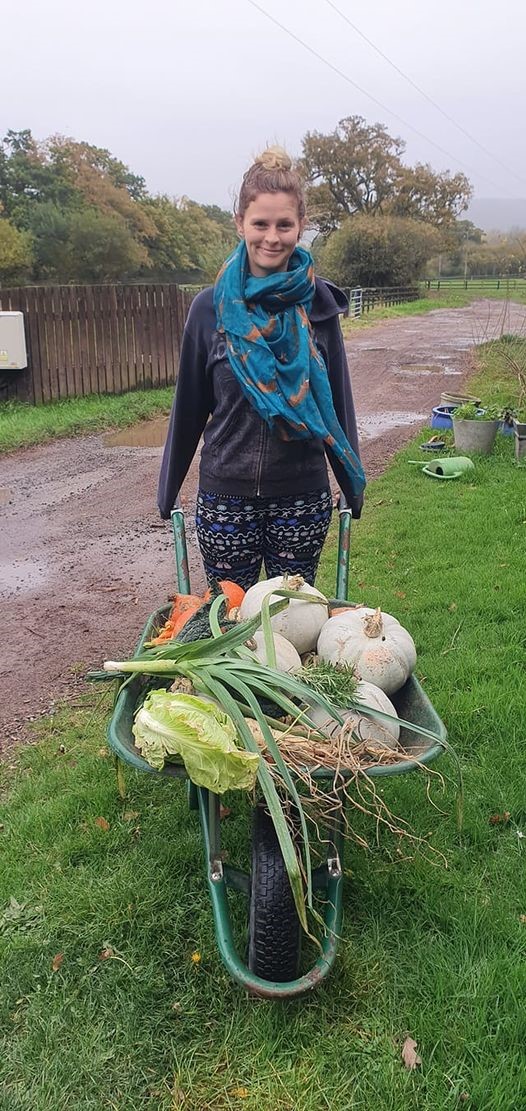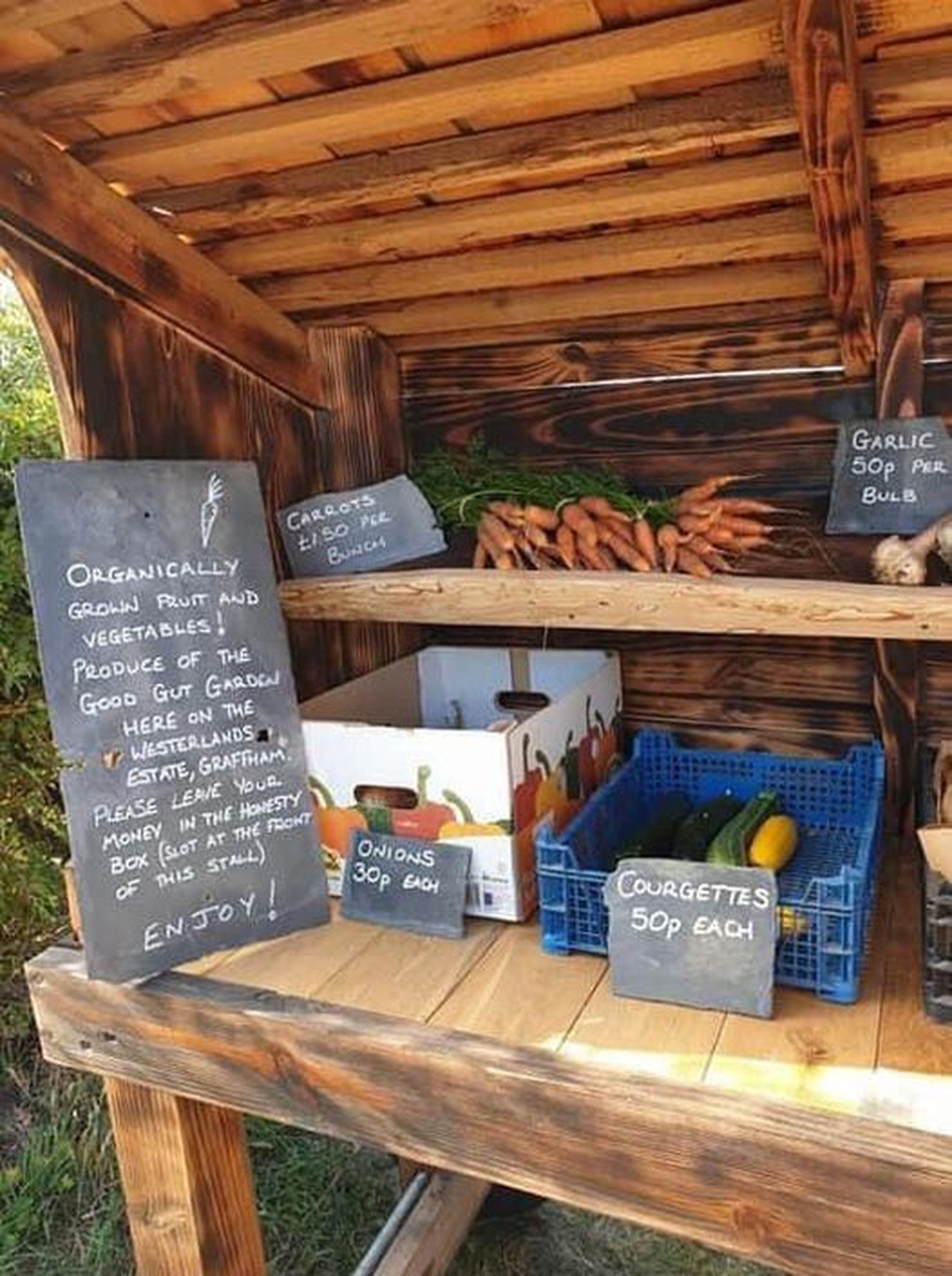God's Greener Earth
RESIDENTS in a little village are taking big steps towards saving the planet with a brilliantly successful united approach.
Recyling, reusing, reducing waste and rewilding is the mantra in Graffham and, as churchwarden Ginny Barrett writes, everyone is playing their part.
AS YOU drive through Graffham, a small village in the heart of the South Downs National Park in rural West Sussex, you could be forgiven for thinking life there could not be anything but green.
Then, last year, it began to get a whole lot greener.
On the back of the Eco Church initiative, Greener Graffham was born, taking its first breath at the annual harvest supper and a few weeks later its first few tottering steps at the village’s St Giles Church.
Interested villagers (and a dog) turned out on a cold, dark evening to see what the village might do to tread more gently on the planet and to increase its resilience in the face of the climate emergency.
Some said “anything we do here is a waste of time” but we only had to look back a few months to remember two occasions when the water supply was cut off, a time when some villagers ran out of heating oil, as well as the not infrequent power cut (including one on Christmas Day) to realise our civilised existence was quite a precarious one.
A move back to a more self-sufficient lifestyle could only be a good thing, even if you are a climate-emergency denier.
The village is blessed with a shop and three pubs. All these businesses became involved one way or another, particularly in improving the range of vegan foods on offer. Stunningly tasty creations can now be had – significantly better than a bowl of chips.
One pub now even offers carbon neutral dining – diners can opt to add £1 to the bill which funds the planting of a fruit tree in the Third World.
The shop set up refill stations for everyday necessities such as dishwashing liquid and allowed us to install the Graffham Bookshelf, where donated books raise money for the Stonepillow homeless charity. The shop has an excellent range of eco-friendly shampoos and other items and is so well stocked that journeys out of the village for provisions are rarely a necessity.
Food bank collection points were set up around the village. The church extended its collection of objects for recycling to include milk bottle tops, printer cartridges, crisp packets, toothbrushes and other things and we even squeezed in an electric vehicle event.
A walking bus to the infant school was trialled. More people came together and spoke to each other about these things and bulk orders for things such as bird seed, compost, loo paper, water butts and even visits from heating engineers (a few air source heat pumps have been installed in various homes) were arranged.
Little did we know that a few months later we would be shut away in our homes in the midst of a global pandemic, comfortably surrounded with our bulk buys. We were well under way with our compost and seed sharing and our growing grew in earnest.
Rozie Apps, editor of the parish magazine, is a permaculture fiend. Helpful articles on sustainability and wildlife are a regular feature of the monthly magazine, which is given free to all households and is available online.
Her profusion of vegetables is available to buy from a purpose-made stall, which is also a great benefit for campers enjoying staycations.
By the end of the summer, recipes for excellent chutneys and jams circulated to deal with the surplus of green tomatoes, all types of apples, medlars and soft fruits. Many of these preserves found their way into this year’s Christmas mobile home produce stall, which raised hundreds of pounds for the village church which, like many others, had a tough year.
One thing that has huge impact on the planet is the heating of our homes. We have some good systems already in operation in the village. One landowner’s woodland management plan is carried out in such a way that it provides sufficient woodchip to provide for the whole estate’s residential hot water and heating requirements via its two biomass boilers, supplying ten properties. This encourages proactive woodland management, much via coppicing of chestnut and hazel, which in turn encourages biodiversity and habitat management. How many people can say the heating of their water actively encourages wildlife?
We have a Greener Graffham Facebook page where articles of interest can be shared. However, the Facebook page that has probably been most useful is Graffham Buy, Sell, Swap, Giveaway and Wanted, which has more than 350 members, with 200 plus posts in the past four weeks alone, offering items as diverse as bird tables, furniture, surplus building supplies, toys, clothes, home-grown produce, vehicles and parts – anything and everything. Finding a use for our unwanted stuff can only be a good thing.
During the pandemic, many of Reverend Vivien Turner’s church services have been online and, since children in the village last year requested that creation is prayed for each week, these prayers are being heard by a wider audience than ever before. We may be a small community but with the encouragement of Eco Church and Creation Care we can all have big aspirations.
Chichester Diocesan Officer Debbie Beer said: “It’s so exciting to hear about St Giles Church and Greener Graffham – a great example of how joining Eco Church can inspire a church to take action with their local community to care for the planet. I’m impressed by how much is happening in Graffham to reduce the village’s environmental impact and build a more resilient and sustainable shared life. In partnering with their communities churches have so much to give and receive, both practically and spiritually.”
Eco Church is a scheme run by A Rocha UK which equips churches to care for God's creation through their worship, buildings, land, community engagement and individual lifestyles.
Churches can complete an online survey to be considered for an Eco Church Award at either bronze, silver or gold level. There are currently 364 bronze, 145 silver and eight gold Church of England Eco Churches.
Churches must show environmental engagement in five areas to receive an award: worship and teaching; management of church buildings; management of church land; community and global engagement, lifestyle.

Photos by David Watson
